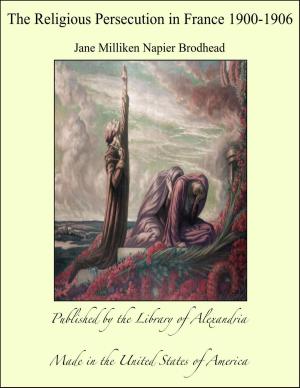History of English Humour With an Introduction upon Ancient Humour (Complete)
Nonfiction, Religion & Spirituality, New Age, History, Fiction & Literature| Author: | Alfred Guy Kingan L'Estrange | ISBN: | 9781465559647 |
| Publisher: | Library of Alexandria | Publication: | July 29, 2009 |
| Imprint: | Library of Alexandria | Language: | English |
| Author: | Alfred Guy Kingan L'Estrange |
| ISBN: | 9781465559647 |
| Publisher: | Library of Alexandria |
| Publication: | July 29, 2009 |
| Imprint: | Library of Alexandria |
| Language: | English |
PRELIMINARY OBSERVATIONS. Subjective Character of the Ludicrous—The Subject little Studied—Obstacles to the Investigation—Evanescence—Mental Character of the Ludicrous—Distinction between Humour and the Ludicrous. The ludicrous is in its character so elusive and protean, and the field over which it extends is so vast, that few have ever undertaken the task of examining it systematically. Many philosophers and literary men have made passing observations upon it, but most writers are content to set it down as one of those things which cannot be understood, and care not to study and grapple with a subject which promises small results in return for considerable toil. Moreover, the inquiry does not seem sufficiently important to warrant the expenditure of much time upon it, and there has always been a great tendency among learned men to underrate the emotional feelings of our nature. Thus it comes to pass that a much larger amount of our labour has been expended upon inquiring into physical and intellectual constitution than upon the inner workings of our passions and sentiments, for our knowledge of which, though affecting our daily conduct, we are mostly indebted to the representations of poets and novelists. Beattie well observes that nothing is below the attention of a philosopher which the of Nature has been pleased to establish. Investigations of this kind would not be unrewarded, nor devoid of a certain amount of interest; and I think that in the present subject we can, by perseverance, penetrate a little distance into an almost untrodden and apparently barren region, and if we cannot reach the source from whence the bright waters spring, can at least obtain some more accurate information about the surrounding country. Notwithstanding all the obstructions and discouragements in the way of this investigation a few great men have given it a certain amount of attention. Aristotle informs us in his "Rhetoric" that he has dealt fully with the subject in his Poetics, and although the treatise is unfortunately lost, some annotations remain which show that it was of a comprehensive character. Cicero and Quintilian in their instructions in Oratory, made the study of humour a necessary part of the course, and in modern days many ingenious definitions and descriptions of it are found among the pages of general literature. Most philosophers have touched the subject timidly and partially, unwilling to devote much time to it, and have rather stated what they thought ought to be in accordance with some pet theories of their own, than drawn deductions from careful analysis. They generally only looked at one phase of the ludicrous, at one kind of humour, and had not a sufficient number of examples before them—probably from the difficulty of recalling slight turns of thought in widely scattered subjects. Add to this, that many of them—constantly immersed in study—would have had some little difficulty in deciding what did and did not deserve the name of humour. Most of their definitions are far too wide, and often in supporting a theory they make remarks which tend to refute it. The imperfect treatment, which the subject had received, led Dugald Stewart to observe that it was far from being exhausted
PRELIMINARY OBSERVATIONS. Subjective Character of the Ludicrous—The Subject little Studied—Obstacles to the Investigation—Evanescence—Mental Character of the Ludicrous—Distinction between Humour and the Ludicrous. The ludicrous is in its character so elusive and protean, and the field over which it extends is so vast, that few have ever undertaken the task of examining it systematically. Many philosophers and literary men have made passing observations upon it, but most writers are content to set it down as one of those things which cannot be understood, and care not to study and grapple with a subject which promises small results in return for considerable toil. Moreover, the inquiry does not seem sufficiently important to warrant the expenditure of much time upon it, and there has always been a great tendency among learned men to underrate the emotional feelings of our nature. Thus it comes to pass that a much larger amount of our labour has been expended upon inquiring into physical and intellectual constitution than upon the inner workings of our passions and sentiments, for our knowledge of which, though affecting our daily conduct, we are mostly indebted to the representations of poets and novelists. Beattie well observes that nothing is below the attention of a philosopher which the of Nature has been pleased to establish. Investigations of this kind would not be unrewarded, nor devoid of a certain amount of interest; and I think that in the present subject we can, by perseverance, penetrate a little distance into an almost untrodden and apparently barren region, and if we cannot reach the source from whence the bright waters spring, can at least obtain some more accurate information about the surrounding country. Notwithstanding all the obstructions and discouragements in the way of this investigation a few great men have given it a certain amount of attention. Aristotle informs us in his "Rhetoric" that he has dealt fully with the subject in his Poetics, and although the treatise is unfortunately lost, some annotations remain which show that it was of a comprehensive character. Cicero and Quintilian in their instructions in Oratory, made the study of humour a necessary part of the course, and in modern days many ingenious definitions and descriptions of it are found among the pages of general literature. Most philosophers have touched the subject timidly and partially, unwilling to devote much time to it, and have rather stated what they thought ought to be in accordance with some pet theories of their own, than drawn deductions from careful analysis. They generally only looked at one phase of the ludicrous, at one kind of humour, and had not a sufficient number of examples before them—probably from the difficulty of recalling slight turns of thought in widely scattered subjects. Add to this, that many of them—constantly immersed in study—would have had some little difficulty in deciding what did and did not deserve the name of humour. Most of their definitions are far too wide, and often in supporting a theory they make remarks which tend to refute it. The imperfect treatment, which the subject had received, led Dugald Stewart to observe that it was far from being exhausted















